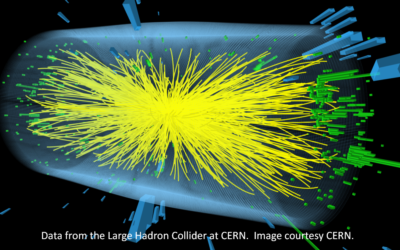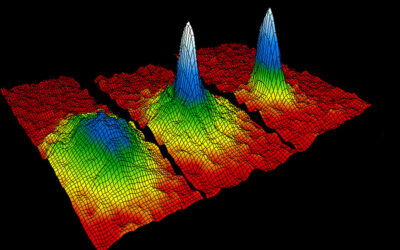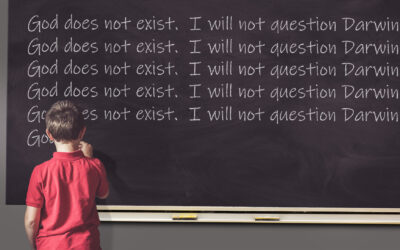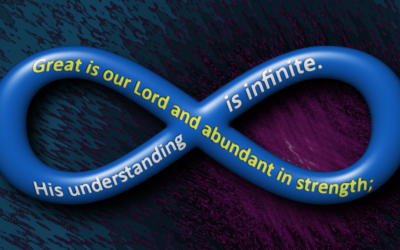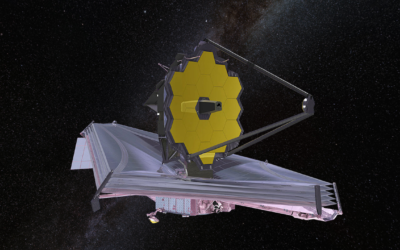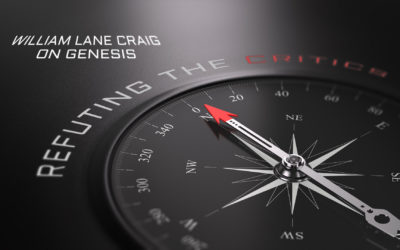ARTICLE ARCHIVES

Quantum Particles: Mesons
The Lord has determined the laws of nature and the kinds of particles that can exist so that our universe has the right properties for life. Biology is possible because of chemistry, which is possible because of physics: the elementary particles God created and the rules governing them. A slight change in the properties of particles or the laws they obey, and atoms could not exist and biological life would be impossible. The intelligence needed to construct the right particles and laws such that biological life can exist is far beyond the combined mental capacity of all people who have ever lived. Quantum particles give us a bit of insight into the infinite mind of the Lord.
Quantum Particles: Baryons
The Lord created certain types of fundamental particles and also determined the rules these particles obey. These are what allow for the rich diversity of substances in the universe today. We here consider baryons – the substance of the cosmos. We will find that baryons confirm biblical creation and challenge secular explanations.
Quantum Particles: Quarks
In the core of every atom is a nucleus consisting of one or more protons, and (except for hydrogen) some neutrons as well. Protons and neutrons are responsible for most of the mass of an atom. The electrons “orbit” around this central nucleus, generally in equal numbers to the protons, which makes the overall atom electrically neutral. Electrons are elementary – meaning they are not made of any smaller particles. But protons and neutrons are composite particles; they are made of smaller particles called quarks.
Quantum Particles: Leptons
The electron is merely one member of a group of particles called leptons. The term lepton comes from the Greek and means “small,” or “thin” and refers to the extremely low mass of leptons. The electron, for example, is 1800 times less massive than a proton.
Quantum Particles: An Introduction
Quantum physics deals with how the universe behaves at very small scales – on the level of atoms and smaller. And it’s weird: very weird. Particles that are smaller than atoms do not behave in exactly the same way as the much larger objects to which we are accustomed. This makes quantum physics one of the most intriguing areas of research, and one which declares the glory and majesty of the Lord.
UFOs and Extra-Terrestrial Life
As an astronomer, I spend a great deal of time outside at night looking up. I have seen many wonderful things in the night sky. And I am often asked if I have ever seen a UFO. Before I answer that question, it is always helpful to define our terms. What is a UFO?
Jesus: The Lord
A critic commented on one of our webcasts on logic. He apparently believes that Jesus is not God. That’s a problem because declaring Jesus as Lord (as Yahweh) is a requirement for salvation (Romans 10:9-13; Joel 2:32). Let’s examine Jake’s (not necessarily his real name) comments in purple text with my response in black text.
Education and Practical Objections
We have been examining education in light of Scripture. We found previously that the Bible instructs parents to instruct/educate their own children in the way of the Lord (e.g. Ephesians 6:4). Some delegation is allowed as long as the educator is instructing the child in a thoroughly biblical worldview. Therefore, Christian schools are an option (if they are Christian indeed in their curriculum). Although many Christians think that public schools are neutral, we found that this is certainly not the case and is impossible according to the Bible (Matthew 12:30). Education, by its very nature, cannot be neutral. It will either be for Christ or against Christ.
Education: Objections to Biblical Principles
What is the most important aspect of rearing children? Is it ensuring that their physical needs (food, clothing, shelter, medical care) are provided? It is teaching them skills necessary for them to provide for themselves and their family when they become adults? Is it learning social skills? Is it inculcating a good work ethic? Is it ensuring that they feel loved and safe?
Education and the Myth of Neutrality
In the previous article, we explored what the Bible states about the education of children. We discovered the following biblical principles. (1) The goal of education is to help a child become a good thinker, reasoning and behaving in a way that is consistent with the character of God….
The Purpose of Education
What is the purpose of education? Who is supposed to do the educating? What topics should be covered? What should be the end result of education? Do we have any moral obligations in how we educate our children or are we free to choose any method whatsoever?
Infinity
Infinity is the concept of an unlimited quantity. Although this idea is challenging for us, it is very real because it stems from the mind of God. God’s understanding is infinite (Psalms 147:5). Therefore, to study the nature of infinity is to learn...
The James Webb Space Telescope
The $10 billion James Webb Space Telescope is now on its way to the earth-sun L2 Lagrangian point where it will begin taking images of the most distant regions of the known universe. Many headlines claim that it will peer billions of years into the past to see the formation of the first galaxies after the big bang. But what is it about this telescope that is so innovative, and what will it really discover?
The Historical Adam – Part 8: Closing Remarks
In this final segment, we continue to critique William Lane Craig’s claim that Genesis 1-11 is mytho-history. The New Testament often quotes from the Old Testament as if the events recorded therein actually happened. Craig attempted to show that some such references may not be endorsing the historicity of such events, but merely using them as literary illustrations. However, none of the examples he provided suggested anything other than a reference to actual historical events. There is nothing wrong with using a fictional story to illustrate a point. But there is no evidence that any biblical author thought of Genesis as anything but straightforward history.
The Historical Adam – Part 7: New Testament References
In analyzing William Lane Craig’s comments on Genesis in his recent article in First Things, we have seen that when New Testament authors quote or allude to Old Testament passages (including Genesis 1-11), they do so as if these events really occurred and often with consequences for our present world. This would seem to be further evidence that Genesis 1-11 is historical narrative, as the text itself indicates along with its context.


